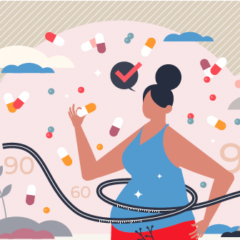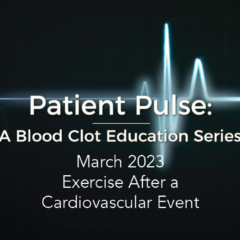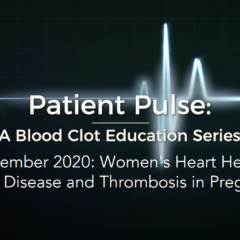Last updated on
Coffee, Alcohol, and Chocolate: Facts vs. Fiction
We’re pleased to welcome Dr. Sanjiv Chopra to this edition of Patient Pulse. Dr. Chopra is a Professor of Medicine and serves as the Marshall Wolf Distinguished Clinician Educator at Brigham and Women’s Hospital. He’s a sought-after inspirational speaker and addresses diverse audiences on topics related to medicine, leadership, happiness, and living with purpose. Most recently, he has written a book about coffee.
In this webinar, Dr. Chopra talks about coffee, alcohol, and chocolate and addresses these questions:
- Are they good for your heart?
- Can they help prevent heart problems?
- What does the research say?
Key Takeaways
- Drinking coffee is linked to a lower chance of getting seven common types of cancer, type 2 diabetes, and atrial fibrillation.
- Some studies suggest that coffee can even reduce the risk of dying.
- Eating 100 grams of chocolate per week can help lower the risk of heart disease. However, we don’t have enough information about how chocolate affects the risk if you’ve already had a heart problem or cardiac event.
- In some studies, moderate alcohol consumption has been connected to a lower chance of having a second heart attack.
- Moderation means having 1 drink per day for women and 2 drinks per day for men.
- Drinking more than these amounts can have harmful effects on your health.
FULL TRANSCRIPT
Hello and welcome to the Patient Pulse. This is the last episode in our series about optimizing heart health after a cardiovascular event, and it’s my pleasure to introduce Dr. Sanjiv Chopra, who will be talking to us about coffee, alcohol, chocolate, and the heart: separating fact from fiction.
Dr. Chopra is a Professor of Medicine and served as the faculty dean for Continuing Medical Education at Harvard Medical School for 12 years. He now serves as the Marshall Wolf Distinguished Clinician Educator at Brigham and Women’s Hospital. He’s a sought-after inspirational speaker and addresses diverse audiences on topics related to medicine, leadership, happiness, and living with purpose. Most recently, he has written a book about coffee. So without further ado, please take it away, Dr. Chopra.
Sanjiv Chopra, MD: Thank you so very much for that very kind introduction, and I’m delighted and honored to be in your midst.
Often the simplest things in life are the best. Today I’m going to talk about coffee, chocolate, and alcohol.
So, coffee is truly the magical elixir. 2.25 billion cups of coffee are consumed worldwide every day. There is a multitude of health benefits, including a lower risk of developing seven common cancers and cirrhosis of the liver.
We’ve heard about diabetes and it being a major risk factor for heart disease. Well, it turns out, if you drink 6 cups of regular or decaf coffee, there’s a 30% to 54% reduction in developing type 2 diabetes. And if you already have type 2 diabetes and drink 2 cups, regular or decaf, there’s a 30% reduction in cardiovascular mortality.
Coffee also lowers the risk of a very significant cardiac arrhythmia called atrial fibrillation. Years ago, we used to worry and would tell our patients with heart disease not to drink coffee because it might raise the blood pressure and cause cardiac arrhythmias. However, the blood pressure increase is very tiny and transient; we develop what’s called tolerance. With coffee, there’s also a lower risk of having Parkinsonism, Alzheimer’s, and more.
So, the Holy Grail would be that if it does all these myriad of health benefits, does it actually lower mortality? And now there are multiple studies published in the New England Journal of Medicine, the best medical journal, and Annals of Internal Medicine, and The Lancet, that men and women who drink coffee have lower total and cause-specific mortality.
So, what about coffee consumption after somebody’s already had a heart attack? So, we’ll look at a prospective study examining consumption of caffeinated and decaffeinated coffee in relation to cardiovascular mortality, ischemic heart disease, and all-cause mortality in patients with a prior heart attack. They enrolled close to 4,400 Dutch patients who had had a heart attack, and 96% of the patients drank coffee. The median daily intake was 3 cups a day. And they found that consumption of coffee, both regular and decaf, appeared to lower the risk of mortality.
A prospective study looks at outcomes in a group of individuals over a period of time, and ischemic heart disease is heart disease caused by narrowing of the arteries. And cardiovascular mortality means death from cardiovascular disease. All-cause mortality means death from any cause. Pretty interesting.
Now, I want to emphasize that coffee has a thousand constituents, and it’s not the caffeine that necessarily confers these amazing health benefits. It has cafestol and kahweol. It has chlorogenic acid, which is the richest antioxidant known to man. It is insulin sensitizing.
We’ve heard that inflammation is the enemy in many, many conditions – in heart disease, in obesity, in diabetes, if we get COVID-19, in cancer. And coffee drinkers have low levels of a marker of inflammation called C-reactive protein, CRP. They have lower levels of tumor necrosis factor alpha. (Even the name sounds horrible!) And coffee drinkers have longer telomeres. Telomeres are at the end of our chromosomes. They prevent fraying of chromosomes and chromosomes sticking to each other. This was a major discovery made by Elizabeth Blackburn, a brilliant Australian scientist, with two other colleagues, in 2009. They got the Nobel Prize in Physiology, or medicine, for work on telomeres and the enzyme telomerase. We can measure it in red cells in the blood.
So, here’s something very important that I’m going to say, that I might even repeat. Who has shortened telomeres? Mothers of chronically, severely disabled children. When you talk about stress, the stress of taking care of your child day in, day out, caregivers of people with Alzheimer’s. Who has longer telomeres? People who exercise, people on the Mediterranean diet, people who meditate, and people who drink coffee.
And here’s the amazing thing. And I’m going to repeat this one. Increased caffeine intake is linked with shortened telomeres. Increased coffee intake is linked with longer telomeres. Let me repeat it. Increased caffeine intake is linked with shortened telomeres. You’re going to die sooner, 8 or 10 years sooner if you have energy drinks with a lot of caffeine every day. But increased coffee intake is linked with longer telomeres. So, it’s the other 999 constituents in coffee that confer those benefits.
What about tea? Green tea and coffee consumption are beneficial. A 19-year follow-up period of 46,000 individuals, 478 stroke survivors, and 1,241 heart attack survivors found that green tea consumption was inversely associated with all-cause mortality, and coffee consumption inversely related with all-cause mortality. So the more coffee you drink, the better off you are. I recommend 2 to 4 cups of regular coffee a day. And I’m one of those who’s had my 4th cup before 4 PM…otherwise, I’ll be up all night. I have friends who would go out for dinner with us, and they’ll order a double espresso at dinner, and they claim they can sleep very well at night.
Now some years ago, I was giving a talk at Mayo Clinic in Rochester. I was giving a talk on happiness and living with purpose. And I said, you know, Siri knows the answer to every question. Let me ask Siri the question. And I asked the question: Siri, what is the secret of happiness? And the answer came back: It is unequivocally chocolate. So that’s the next topic I’m going to briefly discuss.
I happened to get my coffee at 6:45 early in the morning, dressed in my suit to go give the talk at Mayo Clinic. And next to the coffee shop was a chocolate shop. Of course, it’s not open at 6:45 in the morning, but there was a sign in there: Money can’t buy happiness, but it can buy chocolate – which is kind of like happiness.
So chocolate and secondary prevention of heart attack and stroke? No good studies in the literature. Chocolate consumption is good for primary prevention against reduced risk of cardiovascular disease. And 100 grams a week is good; basically a little bit more than one-fifth of a pound. And when you buy the chocolate bar, it will say 60 grams or whatever. Toblerone, for example, comes in many different shapes and sizes, so it varies.
Primary prevention aims to prevent disease or injury before it occurs, whereas secondary prevention means somebody’s already had that event, cardiovascular event or stroke, and now what happens if they eat chocolate, drink coffee, drink wine? Will it prevent the second one? Will it change the trajectory? Will it halt progression of the underlying significant disease?
Modest wine drinking may reduce the risk of a second heart attack. This is a study of 353 French men in the Lyon Diet Heart Study, mean follow-up 4 years. Compared with nondrinkers, men who drank 2 or more glasses of wine each day, reduced their risk for a second heart attack. Pretty astounding – 50% compared to nondrinkers.
Now if you’ve not had a heart attack or stroke and you’re healthy, what’s the right amount of alcohol to drink? And all the studies have said 1 drink a day for women and up to 2 drinks a day for men. If you drink in excess of that, you’d have adverse health effects. If you drink 2 or 3 glasses of red wine and you’re a woman, you have an increased risk of developing breast cancer. So, we need to be very disciplined about the amount of drinking we do and to actually measure the amount of alcohol that we’re pouring into that glass.
My doctor said I could have 1 glass of wine per day. So, here’s a quiz. In this picture, how much of that bottle is in that glass? A) 33%; B) 50%; C) 66%. When I do this in front of a live audience, a lot of people will say B or C. It’s actually a trick question. The correct amount is 100%. That’s a pretty big glass of wine. So, 1 glass of wine, you’ve got to be very careful what you’re measuring.
Now, where did coffee originate? According to legend, it originated in a village called Kaffa in Ethiopia. And there was a shepherd by the name of Kaldi who took his sheep for pasture. He noticed in one particular pasture they were very frisky and animated, where they were consuming these red berries. So he made a brew out of it. He really enjoyed it. There was a monastery nearby. A monk would walk by, and he scolded him. He said, Kaldi, you have partaken of the devil’s fruit. Kaldi ignored him. After a while, the monk said, let me try it. And he was able to stay up for the late-night prayers.
A group of well-meaning people petitioned Pope Vincent III – this is about 750 years ago – and said “coffee is truly the devil’s drink, and you need to ban it.” And the Pope said, “before I ban it, let me taste it.” And when he tasted it, instead he baptized it, proclaiming “coffee is so good, the infidels should not have exclusive use of it.”
There’s an amazing story of Baba Budan in the 16th century, a Sufi mystic who was revered by the Hindus and Muslims in India, and he goes on a pilgrimage to Mecca. Mecca, at that time, was in Yemen. And he has his first taste of coffee, and he’s blown away. So, he wants to bring back coffee beans to India and grow them in a place called Bangalore, India. If you were caught smuggling coffee beans, punishment was death. He had a long beard. He smuggled 7 coffee beans in his beard and came back to India and escaped the punishment. You could take coffee powder, but they didn’t want you to take coffee beans because you could now grow it in other parts of the world.
So, I’ve written a book called Coffee the Magical Elixir: Facts that Will Astound and Perk You Up. I’ve told you a lot about it. You don’t need to read the book. Lower risk of 7 common cancers, diabetes, atrial fibrillation, Alzheimer’s dementia, Parkinsonism, gout, dental cavities, and even death by suicide. Lower risk with coffee.
That’s the end of my talk. Thank you again for inviting me.
Thank you so much for that wonderful and engaging presentation, Dr. Chopra. There is, obviously, a lot of information out there about coffee, alcohol, and chocolate, whether they’re good for your heart or bad for your heart. So, thank you for clearing up some of the facts and fiction.
Thank you all for joining us.



